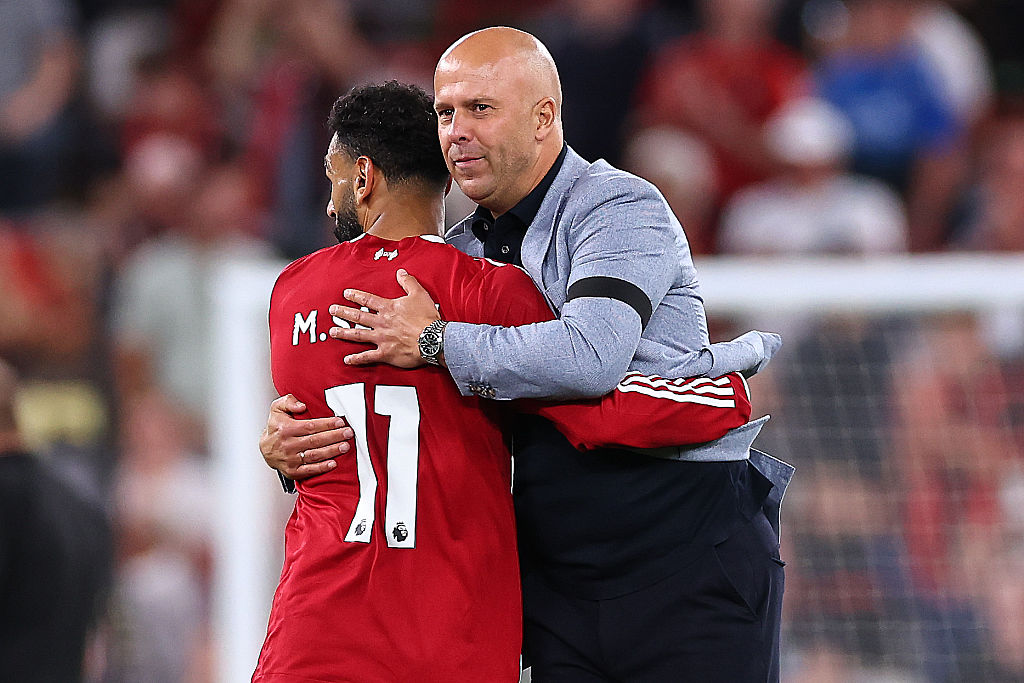Ranked! The 100 best European football players of all time
The 100 best football players who have ever lived: from Cristiano to Camacho, Beckenbauer to Beckham and everyone in between
10. Michel Platini
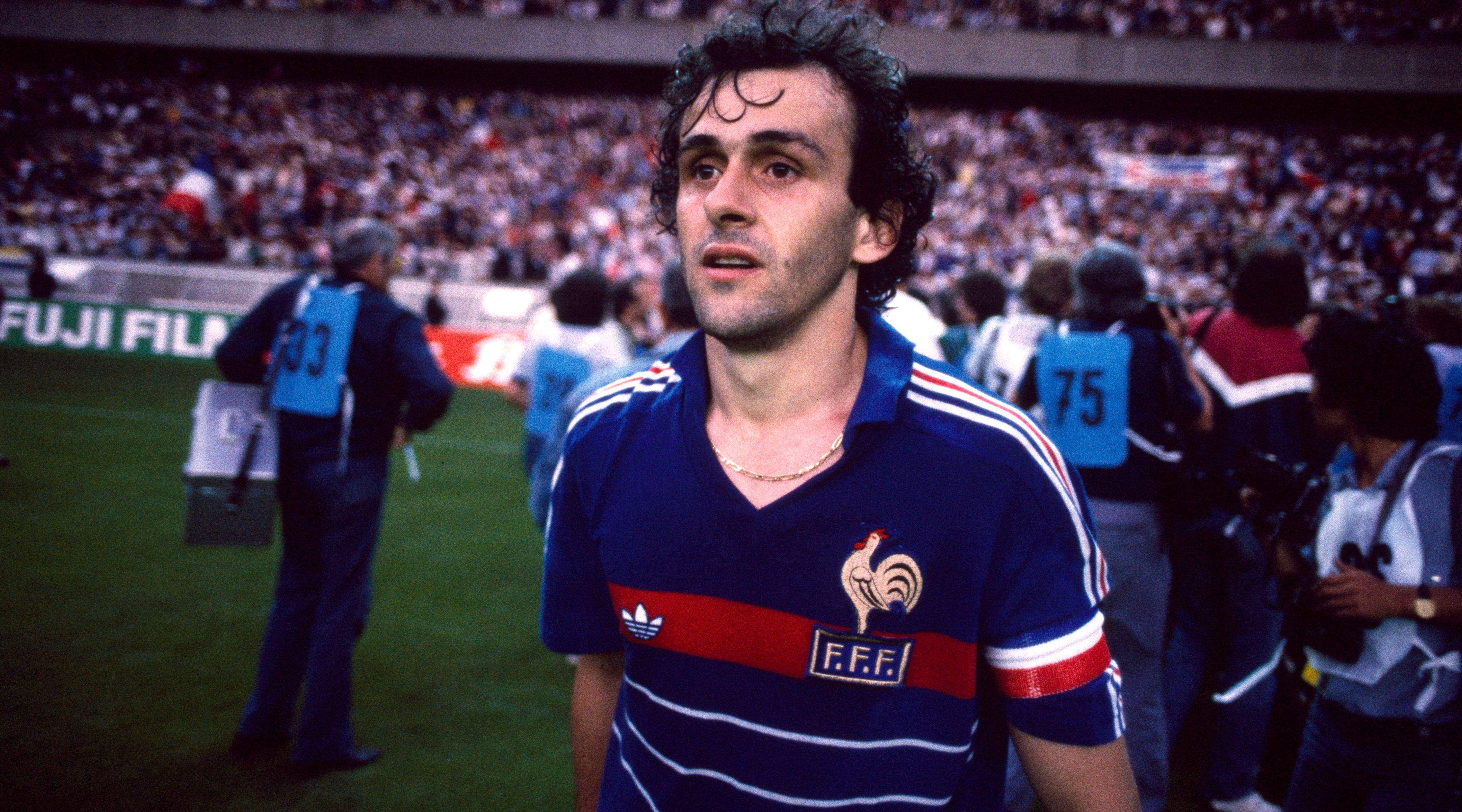
While Platini had a phenomenal club career that yielded a European Cup and multiple league titles across his spells at Nancy, St Etienne and Juventus, it is the Frenchman's exploits on the international stage where his legacy truly lies.
An offensive midfielder who relied on his technique and skill rather than any physical attributes, Platini's crowning moment came in 1984 when he led France to the Euros trophy with nine goals in five matches. With two hat-tricks in the group stages, he then decided the final against Spain with a pin-point free-kick to land France their first-ever major international honour, in what is arguably the the greatest-ever individual performance at an international tournament.
His three consecutive Ballon d'Or trophies between 1983 and 1985 epitomise the impact he had on football at the time - it just seems a massive shame that he retired in 1986 at the age of just 32. A premature decision for someone so revered.
9. Xavi
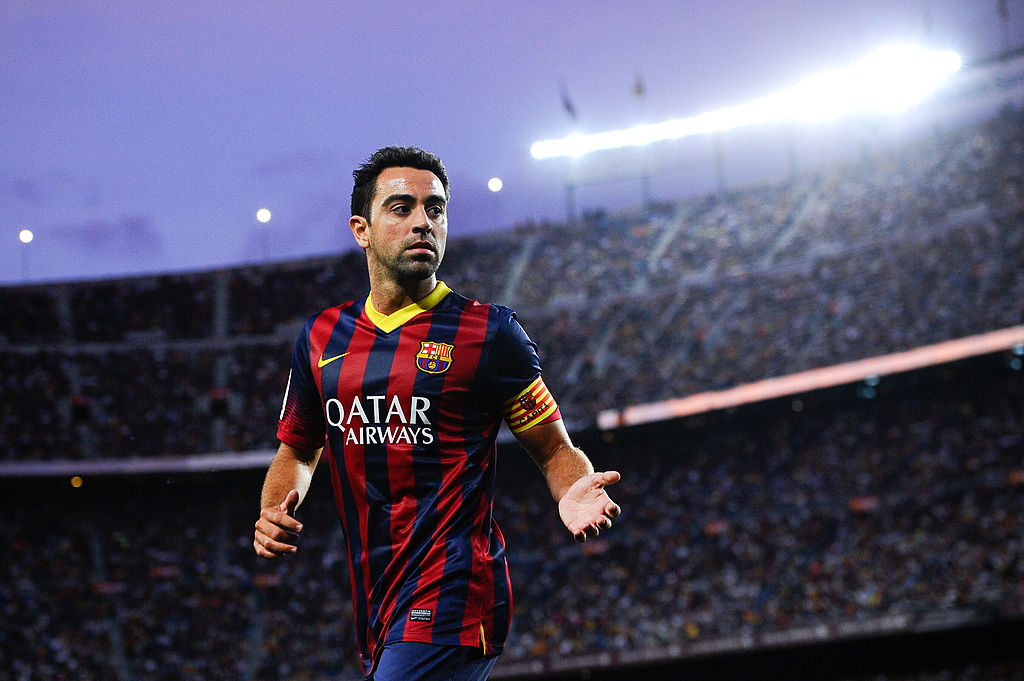
The heartbeat of the greatest club side to have ever been assembled, without Xavi it's not a stretch to suggest Barcelona would have enjoyed quite the same success between 2008 and 2012. Same goes for the Spain side that managed two Euros victories either side of a World Cup win in the same period, too.
With a tactical brain that is now being put to use as a manager, Xavi kept things ticking in midfield throughout the game, dictating the tempo through his passing speed and accuracy, effectively telling his team-mates what they should do next with the ball.
While he's sometimes overlooked for his team-mates, he's also one of just three players to have made the Ballon d’Or top three on at least three occasions, while the Spaniard has also amassed over 1,000 career appearances, too.
8. Paolo Maldini
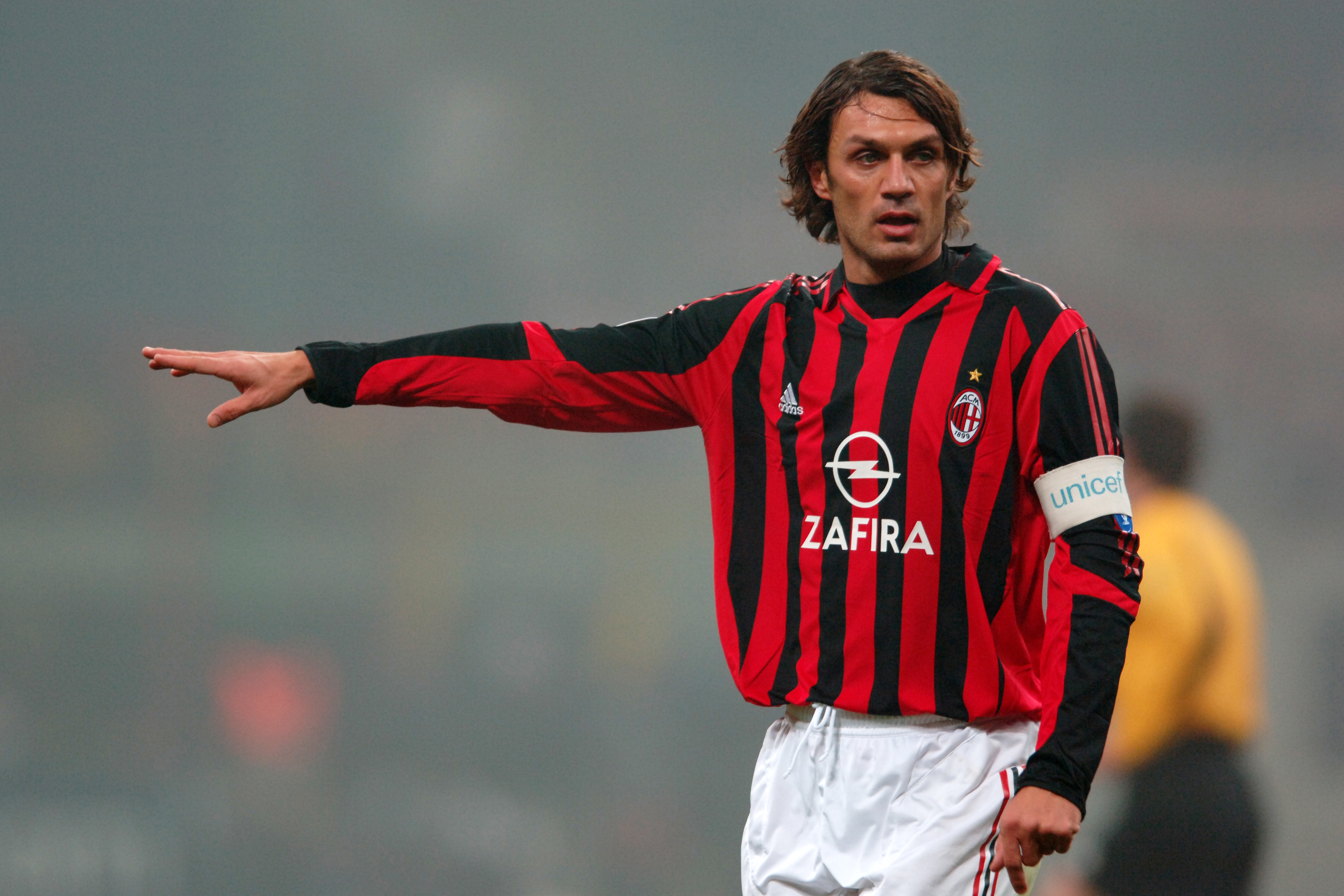
Any player that manages 1,028 appearances for club and country across a 25-year career deserves all of the admiration, respect and honour that is thrown their way, but for Maldini to have spent every single season at a preeminent force like AC Milan is truly staggering. Additionally, he was a right-footer often playing at left-back - highlighting his immense ability.
The best features, fun and footballing quizzes, straight to your inbox every week.
In his early years, Maldini would get forward and join attacks thanks to his endless energy and superior technical ability. In the latter stages, he would rely on his experience, tactical nous and reading of the game to ensure the defence would remain difficult to break down.
The Italian has won every trophy he could've at club level, and came close to both World Cup and Euros glory by reaching three different finals across his career, though that's clearly not a slight on the defender's great legacy. It's difficult to look past the defence he was a part of during the 1987/88 Serie A season in which Milan only conceded 14 goals, too.
7. Gerd Muller
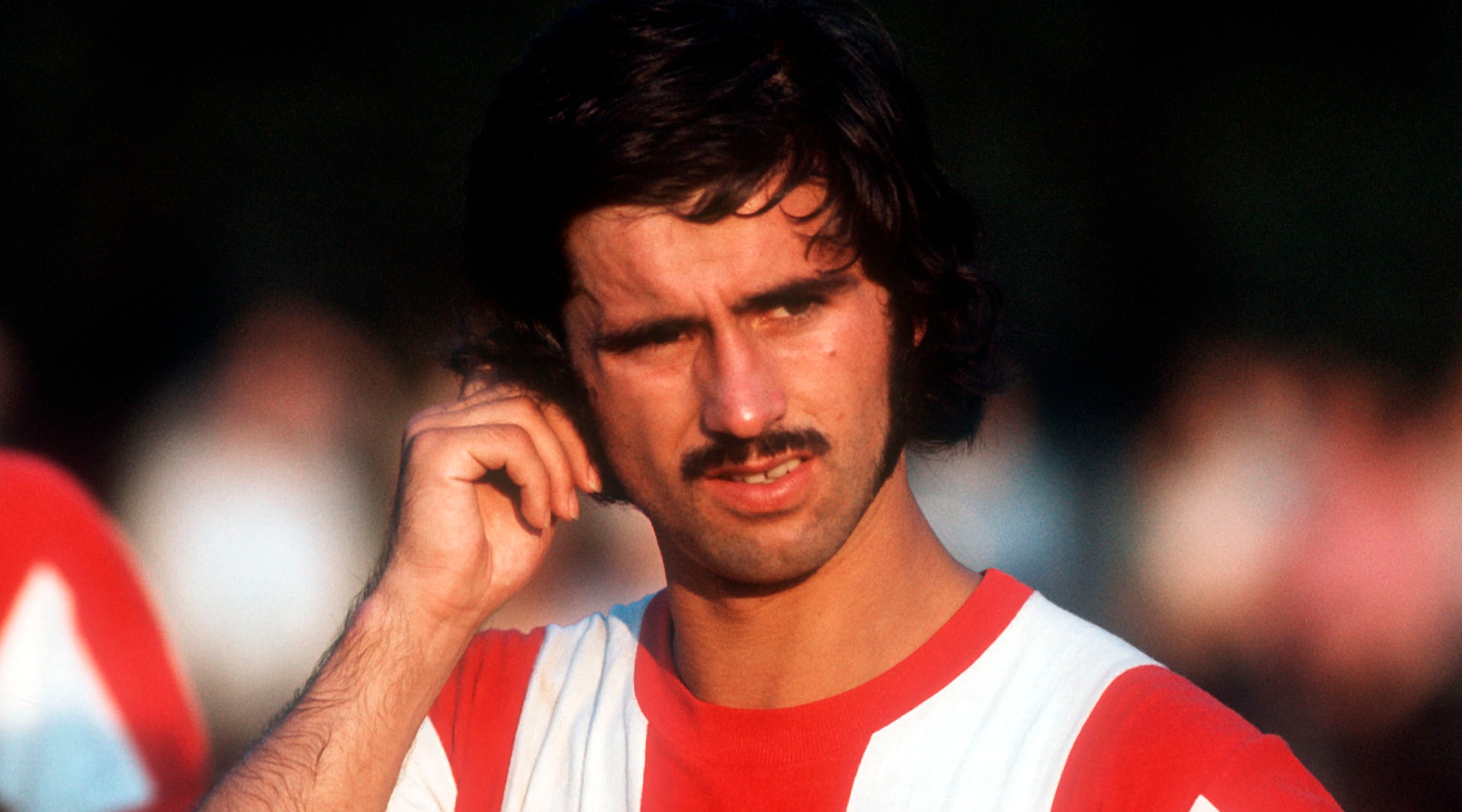
When it comes to pure finishers, Gerd Muller tops the absolute lot. The original No.9, Muller was a penalty box predator who hit the back of the net on such regular occasion that he quickly earned the moniker, Der Bomber.
Between 1964 and 1979, the German struck 565 goals in just 607 games for Bayern Munich, a phenomenal feat during a period when defences were a lot more resolute and goals were much harder to come by in the Bundesliga. Perhaps more impressive, though, is his exploits on the international stage - in 62 games for West Germany, Muller scored a staggering 68 times, including eight hat-tricks.
His acceleration over the first couple of yards meant he latched onto any loose balls around the goal area, while he had the ability to outjump his markers, too. He ended his career with a World Cup, European Championship, three European Cups, a Ballon d'Or and countless other domestic honours at Bayern Munich. Not bad for someone not deemed conventional to play as a professional footballer.
6. Bobby Charlton
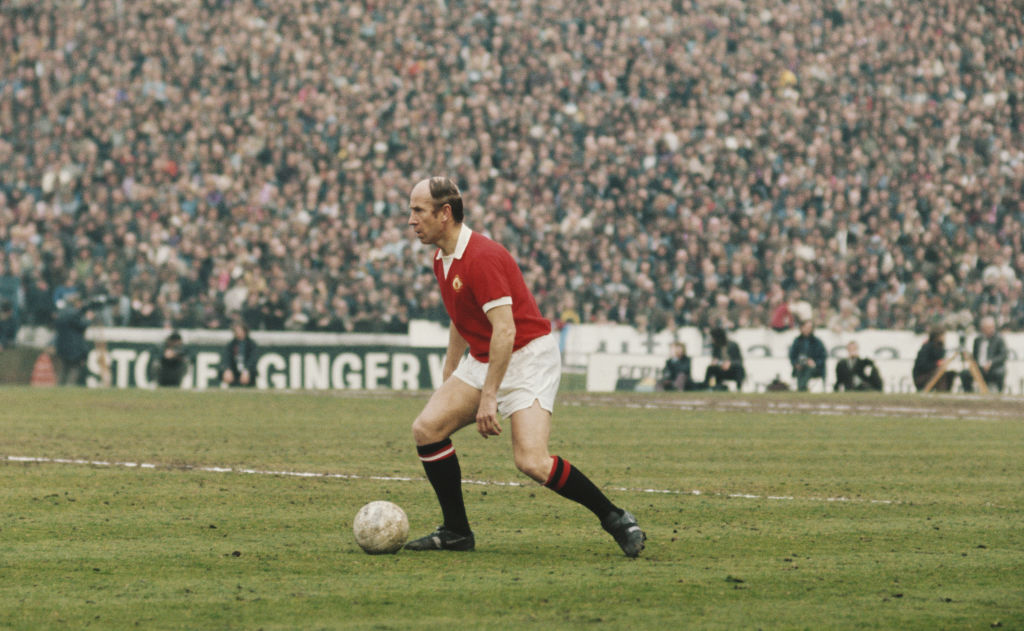
England's greatest-ever player, Charlton had a career that took him from the depths of despair to the peaks of jubilation. A member of the Busby Babes, Charlton understandably struggled to focus on his football following the 1958 Munich air crash, though he ultimately rediscovered his confidence in the mid-60s to great effect.
After lifting the 1966 World Cup on home soil at Wembley, the Manchester United forward helped his club win the European Cup at the same stadium a couple of years later. His emotion following the game were of both joy and sadness, with the Englishman reminiscing on the memory of his team-mates from a decade beforehand.
As a player, Charlton's ability to absolutely thwack a ball became infamous, too. He would cannon shots at hapless goalkeepers on a regular basis with either foot, while he could dribble effortlessly around opposition defenders. Bear in mind, too, that Charlton's era saw leather balls in use - just imagine what the great man could have achieved with a Jabulani. Actually, we daren't not...
5. Andres Iniesta
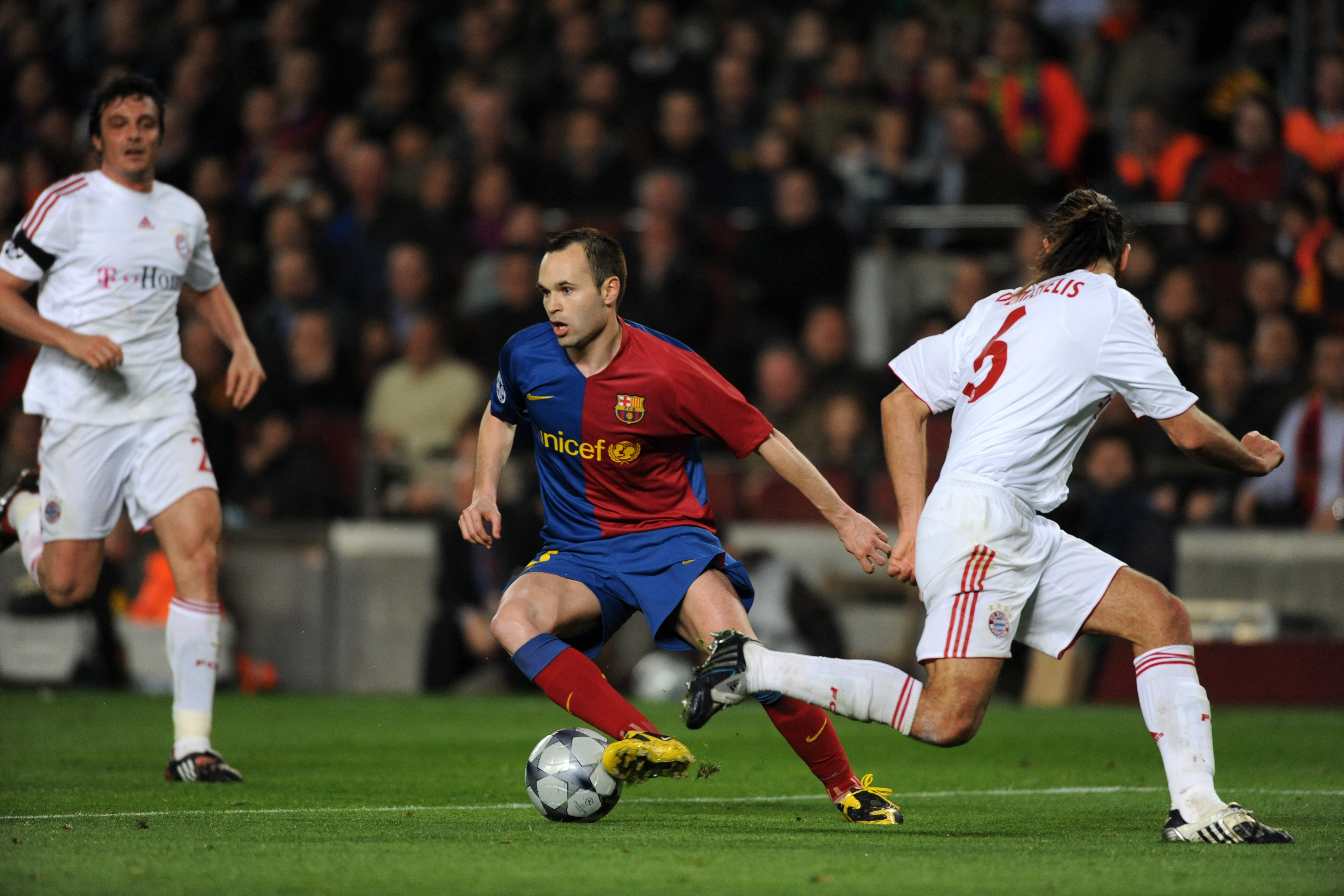
It might seem somewhat harsh on Xavi that his midfield partner Andres Iniesta has sneaked a few positions higher on this list, but the latter just had a little extra to his game which truly elevates his status.
Having come through Barcelona's La Masia academy, it's a given that Iniesta's passing ability and close control is exceptional, while his tactical brain ensured he always stayed multiple steps ahead of the opposition.
What isn't a given, so much, is Iniesta's propensity to pop up with the occasional screamer or crucial goal at a crucial time in a game. His finishes against the Netherlands in the 2010 World Cup final and versus Chelsea in the second leg of Barcelona's semi-final of the Champions League in 2009 highlight that.
In fact, Iniesta was a versatile playmaker lauded for his balance, ball control and agility in close spaces, combined with his skill, composure, and flair on the ball. Managers utilised the diminutive midfielder across a number of attacking positions in his early career, such was his ingenuity higher up the pitch, before finally settling into that famous midfield three at Barca.
With a low centre of gravity, Iniesta was also deceivingly quick over five yards, helping him skip past opponents before invariably delivering a killer through ball. Sure, having Lionel Messi ahead of him, Xavi to his side and Sergio Busquets behind helped, but Iniesta was the conduit to help transition the ball into the final third.
Plus, Iniesta is the only footballer in history to win the man of the match award in a World Cup final, a European Championship final, and a Champions League final. In essence, this truly sums up the quality of the footballer.
4. Zinedine Zidane
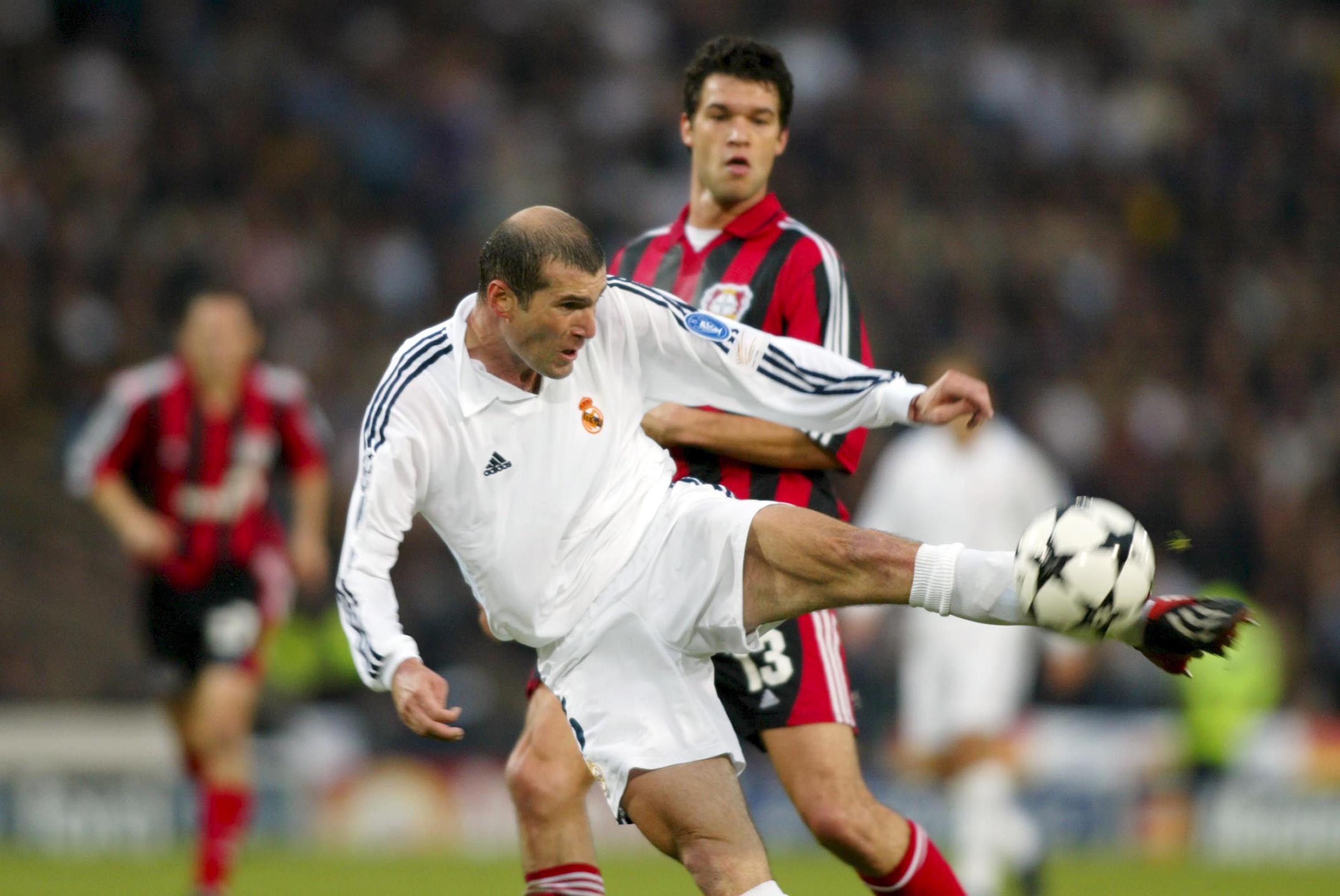
Ah, Zizou. It seems hard to believe a man so tall and rangy could be so balletic and graceful while on the football pitch. The Frenchman possessed the deftness of touch any great playmaker needs, the strength to shrug off opponents with ease, and the technique to deliver killer passes and devastating finishes.
Renowned for his signature double drag-back skill, Zidane would mercilessly embarass defenders with such ease it seemed difficult to tell whether or not he was actually trying. Step overs were sharp, his ball control elite, and his brain seeing things on a football pitch that others couldn't even comprehend.
Sure, he was a flawed genius, most evident through his headbutt on Marco Materazzi in the 2006 World Cup final, but then again, aren't all creative types? He won the 1998 Ballon d'Or as France won the World Cup, lifted plenty of trophies during his time at Juventus and Real Madrid, then retired and became the first manager to win the Champions League in consecutive years - before adding a third for good measure in 2018.
But May 15, 2002; Hampden Park, Scotland, proved the zenith of Zidane's illustrative quality. With the ball smashed high into the night sky from Roberto Carlos out on the left wing in the 45th minute of the Champions League final, Zidane patiently watched as it came flying back down to earth having gathered snow on the way up. With a nonchalant pivot he controlled the ball directly into the top corner on the full volley, with his weaker left foot.
For anyone else but Zidane this was a skill that would've been impossible. Plenty of players would've missed the ball altogether, while many goalkeepers would have been left waving at the shot heading towards row Z. And therein lies the abundant ability the attacking midfielder possessed, epitomised by a beautiful volley in Scotland.
3. Franz Beckenbauer
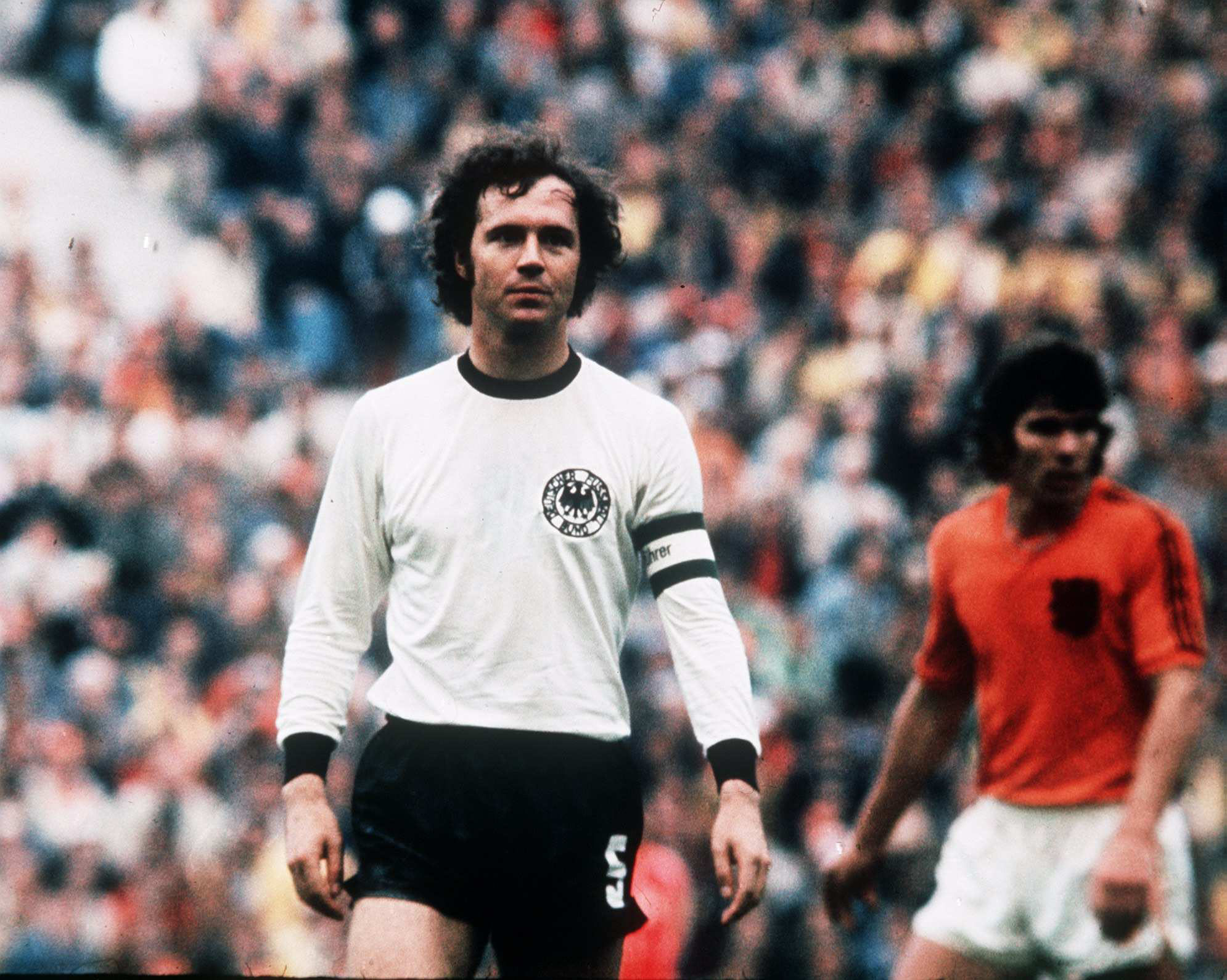
Der Kaiser won it all between 1972 and 1976: three Bundesliga titles, three European Cups, the World Cup, European Championship and two Ballon d'Or awards. A natural born leader, Beckenbauer dragged his Bayern Munich and Germany teams to finals upon finals and trophies upon trophies through his dominant ability and cajoling of his team-mates.
Though not universally loved during his playing days, the German's footballing ability is highlighted by the fact he started as a centre-forward, excelled as a left winger, kept things ticking in central midfield before settling into the role of the modern sweeper - a position he is credited as having invented.
A defensive player who started from deep, Beckenbauer would often proactively get involved in attacks, and to great effect, too: across his 20-year career, Beckenbauer scored 98 goals in 754 appearances at club level, including plenty more assists.
On the ball, the German was clearly a brilliant player, calm and composed during even the most-pressurised of situations. Off it, he commanded respect from team-mates and opponents alike, with his reading of the game second-to-none.
Beckenbauer would regularly make crucial interceptions and timely interventions simply by being in the right place at the right time, before striding out from defence with such grace that he made the game seem simple.
Managers loved him, too, depending on his reliability. Nowhere was that more evident than during the 1966 World Cup, when he was tasked with man-marking Bobby Charlton out of the game at just 21-years-old. Though West Germany ended up losing the game, Beckenbauer fulfilled his duty, with Charlton barely offered a sniff all match. He would go on to affect football matches in a similar way for the next 17 years.
2. Johan Cruyff
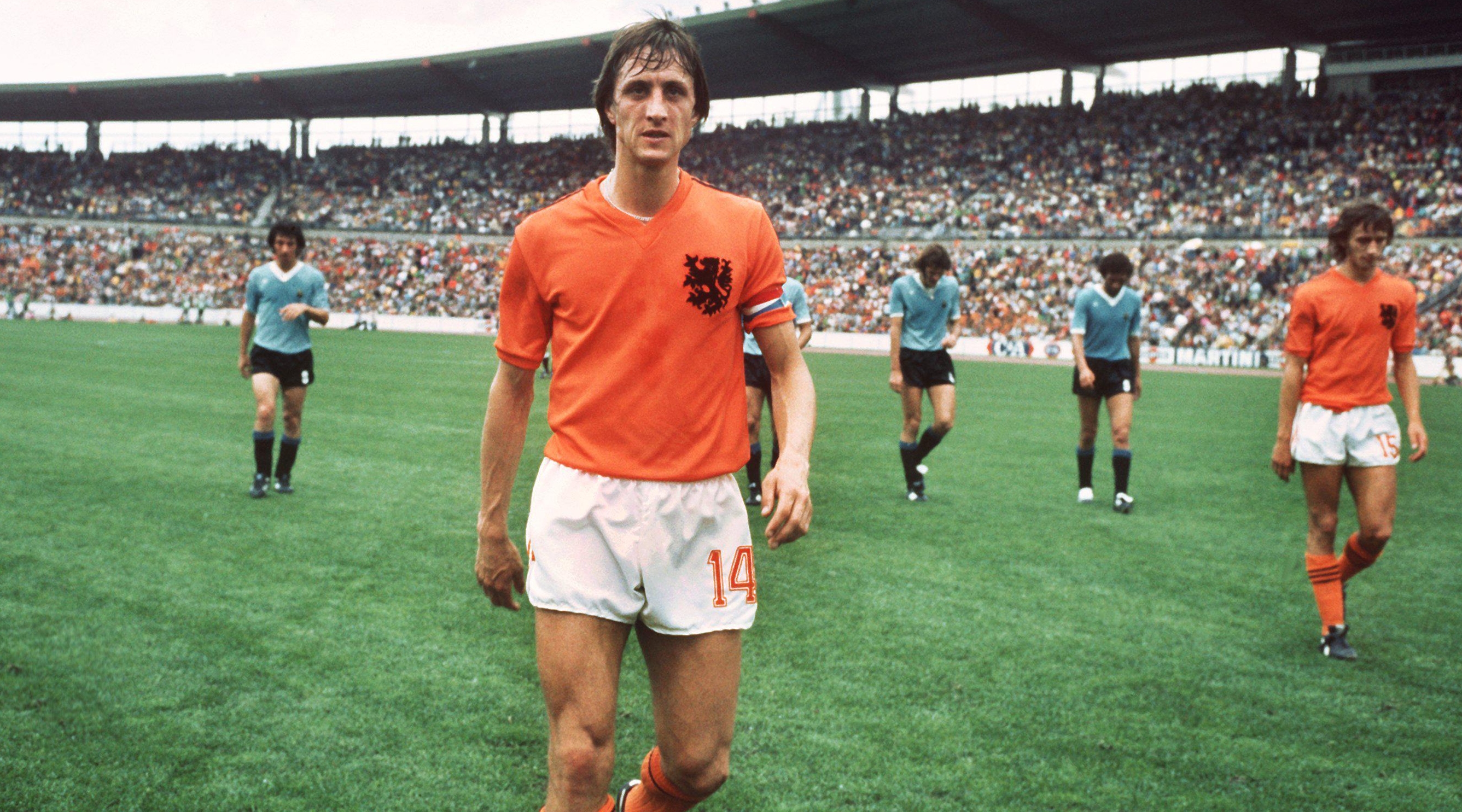
For younger generations, Johan Cruyff will forever be synonymous with that turn so effusively coined in at the 1974 World Cup; for older generations, the Dutchman is the Total Footballer.
As Swedish defender Jan Olsson, the victim of the Cruyff Turn in 1974 testifies, the skill highlighted his brilliance and genius all in one: "I played 18 years in top football and seventeen times for Sweden but that moment against Cruyff was the proudest moment of my career," Olsson said. "I thought I'd win the ball for sure, but he tricked me. I was not humiliated. I had no chance. Cruyff was a genius."
Indeed. Serving as Rinus Michels' on-field conductor for the Netherlands' famed Total Football system, Cruyff's tactical awareness meant that he orchestrated his team-mates into various positions on the pitch to such great effect that opposition defenders were often left bamboozled by what was happening.
Though he started as the team's centre-forward, Cruyff would drop deep and move out wide to get on the ball more frequently and drag defenders out of position. In doing so, he unwittingly became the first proponent of the false No.9, influencing modern footballers even 50 years on.
Sure, his technical ability was unmatched. He could dribble past opponents with such grace and ease, while his goalscoring prowess often didn't get the credit it deserved. But it was truly his brain that set him apart from the rest.
On the concept of technique in football, Cruyff once said: "Technique is not being able to juggle a ball 1,000 times. Anyone can do that by practising. Then you can work in the circus. Technique is passing the ball with one touch, with the right speed, at the right foot of your team mate."
It's no wonder, therefore, that Cruyff is arguably the most influential football figure in history, considering the impact he had both as a player and as a manager.
1. Cristiano Ronaldo

In the latter years of his career, things might not have all gone swimmingly for Cristiano Ronaldo: Lionel Messi won his eighth Ballon d'Or to all-but-end the debate of who is the greatest play of all time, with the Argentine also adding a World Cup trophy to his haul for good measure.
But, despite his footballing nemesis overtaking him, the Portuguese forward and his achievements simply cannot be overlooked when it comes to the best European players of all time.
His five Ballon d'Or awards, achieved in the same period when Messi was terrorising defences, is undeniably remarkable, placing him second on the list for most wins. Platini, Cruyff and Van Basten are the next best with three awards to their names, putting into perspective just how phenomenal, and consistent, Ronaldo has played during his career.
A winger by trade, Ronaldo reinvented himself into a striker as he turned 30, managing to convert his pace and dribbling skills into efficiency and goalscoring at an alarming rate. At Manchester United, he was highly-effective but still quite raw; at at Real Madrid, he became an unplayable monster.
Indeed, for six straight seasons between 2010/11 and 2015/16, Ronaldo managed over 50 goals in all competitions for his club, despite not playing predominantly as a striker, dragging them to four Champions League trophies during his time at the club, too, to add to the one he picked up at Manchester United.
Strong off both feet, Ronaldo's work rate is also unmatched. Known as a player who lives like a monk to ensure he prepares as best he can for matches, his ability to hang in the air and devastate defenders with his heading highlights just how much of an athlete he truly is.
At international level, he's been no different, either. The highest-scoring men's player in international games in history, having plundered over 125 goals in his 200-plus appearances for Portugal, the Madeira-born star also won a European Championship trophy with a poor Portugal side that only managed to win one game at Euro 2016 in normal time, in the semi-final against Wales.
Quite simply, no player - European or otherwise - has ever spent so long at the top.
Current page: The 100 best European football players of all time: 10-1
Prev Page The 100 best European football players of all time:: 20-11
Ryan is a staff writer for FourFourTwo, joining the team full-time in October 2022. He first joined Future in December 2020, working across FourFourTwo, Golf Monthly, Rugby World and Advnture's websites, before eventually earning himself a position with FourFourTwo permanently. After graduating from Cardiff University with a degree in Journalism and Communications, Ryan earned a NCTJ qualification to further develop as a writer while a Trainee News Writer at Future.
